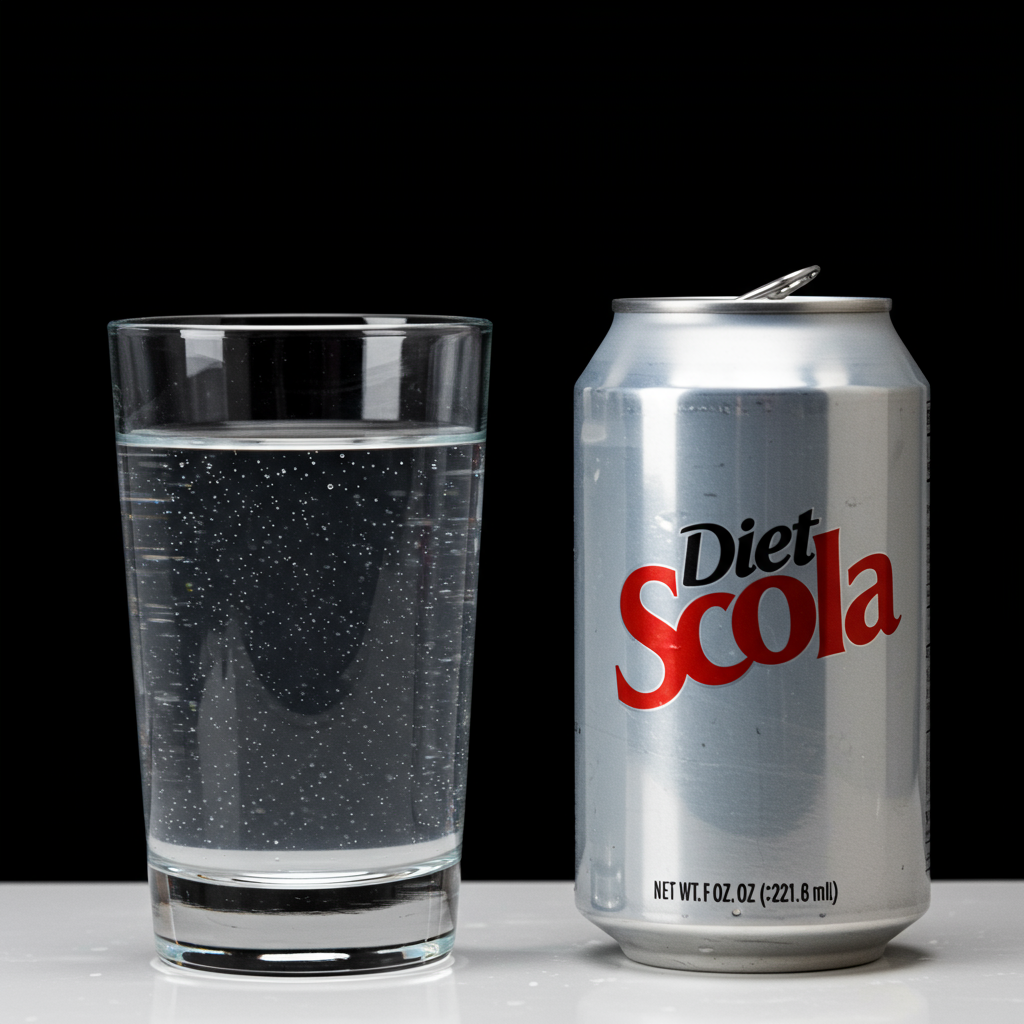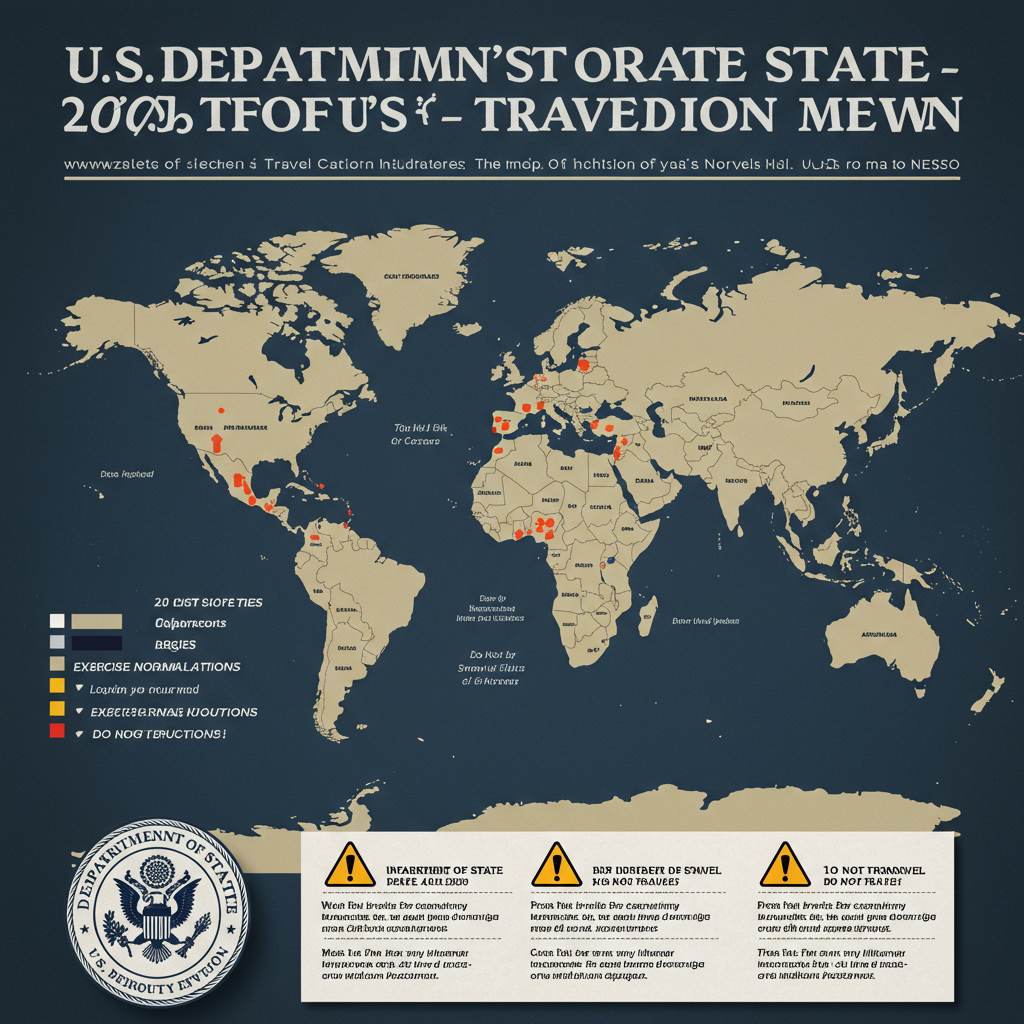For many managing Type 2 diabetes, diet soda seems like a sensible swap for sugary drinks to control calories and blood sugar. But emerging research challenges this assumption. A recent small study suggests that replacing diet soda with plain water might offer significant advantages for both weight loss and the chance of achieving diabetes remission, potentially outperforming even diet beverages within a structured health program.
The Study: Swapping Diet Soda for Water
Presented at the 85th Scientific Sessions of the American Diabetes Association (ADA), preliminary findings from a study involving 81 women paint a compelling picture. All participants were overweight or had obesity, were diagnosed with Type 2 diabetes, and habitually consumed diet sodas. They enrolled in an 18-month program designed for weight loss followed by weight maintenance.
To understand the impact of diet soda, researchers randomly divided the women. One group swapped their diet soda habit for water, specifically after lunch five times weekly. The other group continued their usual diet soda consumption.
Key Outcomes After 18 Months
The results were notable, although preliminary:
Greater Weight Loss: The water-drinking group lost significantly more weight, averaging 6.82 kilograms (about 15 pounds). The diet soda group lost an average of 4.85 kilograms (about 10.6 pounds). That’s a difference of roughly 4.4 pounds.
Higher Remission Rates: Those who switched to water were approximately twice as likely to achieve diabetes remission. A striking 90% of the water drinkers reached remission, compared to 45% in the diet soda group.
Diabetes remission, as defined in the study, means maintaining a hemoglobin A1C (a measure of average blood sugar) level below 6.5 percent for at least three months without taking glucose-lowering medications.
Why Might Diet Soda Hinder Progress?
While this specific study wasn’t designed to definitively explain why diet soda might impede weight loss and remission, the lead author, Mehdi Nasr, points to artificial sweeteners as a potential factor. These calorie-free sweeteners might interfere with the body’s natural appetite signals. This could lead to increased cravings for sweet or calorie-dense foods. Consuming such foods could undermine the efforts people make in weight loss programs and make blood sugar control more difficult.
The findings introduce a question about whether artificial sweeteners, despite lacking calories, behave neutrally in the body regarding metabolic goals, particularly for individuals with existing metabolic conditions like Type 2 diabetes.
Expert Perspectives and Study Limitations
Not all experts are convinced by these initial results, and the study does have important limitations. It was small, involving only 81 women. The findings are preliminary and haven’t yet undergone peer review in a medical journal. Independent experts not involved in the research haven’t reviewed the data.
Dr. Robert Cohen expressed skepticism, noting the study lacked data on crucial variables that heavily influence diabetes remission. These include participants’ use of diabetes medications, their specific eating habits, and their exercise routines. He questioned if a weight difference of about 5 pounds was clinically significant enough to explain the vast difference in remission rates (90% vs. 45%). Dr. Cohen also highlighted the absence of baseline information on how close participants were to remission at the start or if the groups were truly comparable in initial weight and blood sugar levels.
Despite these limitations, the results align somewhat with other research on artificial sweeteners, according to Dr. Danielle Haslam. She referenced a World Health Organization (WHO) review. That review suggested observational studies indicate long-term consumption of non-sugar sweeteners might increase risks for various conditions. These include Type 2 diabetes, cardiovascular diseases, cancer, and premature death in adults without diabetes.
Beyond Remission: Diet Drinks and Diabetes Risk
It’s crucial to consider this recent study on diabetes remission in the context of broader research. Several long-term studies have explored the link between regular diet drink consumption and the risk of developing Type 2 diabetes in the first place.
One large observational study (CARDIA) tracked over 4,600 adults for 30 years. It found that participants who consumed the most diet beverages had a 129% higher risk of developing diabetes compared to those who consumed the least. The study also linked high intake of specific sweeteners like saccharin to increased diabetes risk (110% higher).
Another study looked at food additive mixtures commonly found in processed foods, including artificially sweetened soft drinks. This research found that consuming certain combinations of additives was correlated with an increased risk of developing Type 2 diabetes. These mixtures included artificial sweeteners like aspartame and sucralose along with various emulsifiers and preservatives.
These findings suggest that diet drinks may not be the harmless, risk-free alternative to sugar-sweetened beverages that many believe. While they avoid added sugar calories, their potential impact on metabolism, appetite, and long-term health outcomes is a subject of ongoing scientific debate.
Sugary Drinks vs. Diet Drinks: Which is Better?
Health authorities widely agree that sugar-sweetened beverages (SSBs), like regular soda, fruit punch, and sweetened teas, are major contributors to obesity, Type 2 diabetes risk, heart disease, and other health issues. They are high in calories and added sugar but offer little nutritional value. Liquid calories from SSBs don’t promote fullness as effectively as solid food calories, often leading to increased overall calorie intake.
Compared to SSBs, diet drinks are often presented as a better option. And for someone heavily reliant on regular soda, switching to diet might seem like a logical first step. However, based on the studies discussed, even diet drinks raise concerns. While they remove the added sugar, the potential negative effects of artificial sweeteners or additive mixtures might exist.
Research suggests that replacing SSBs with low-calorie sweetened beverages might help in some cases, perhaps as a temporary transition strategy. But studies comparing substitutions show that replacing SSBs with water, unsweetened coffee, or tea is often linked to a lower risk of developing Type 2 diabetes compared to replacing SSBs with artificially sweetened drinks.
The consensus building from various studies is that prioritizing water and truly unsweetened beverages over both sugary and diet drinks appears to be the most consistently beneficial approach for long-term metabolic health.
Should You Give Up Diet Soda?
Given the recent study suggesting diet soda might hinder weight loss and diabetes remission efforts in people with T2D, and the broader evidence linking long-term high diet drink intake to increased risk of developing T2D, a cautious approach seems warranted. For those with Type 2 diabetes actively working towards remission and better weight management, swapping diet soda for water aligns with the promising results of the preliminary study. For anyone concerned about their metabolic health and reducing the risk of developing diabetes over time, cutting back on all types of soda, including diet versions, and focusing on healthier alternatives is a sensible strategy supported by multiple research areas.
Consider reducing or eliminating diet soda intake gradually. Replace it with beverages known to support hydration and metabolic health without the potential downsides of artificial sweeteners or additives.
Healthy Alternatives to Diet Soda
The good news is there are many refreshing and healthy drinks you can enjoy:
Plain Water: Still or sparkling water is the best choice.
Unsweetened Tea: Black, green, or herbal teas provide flavor and antioxidants without sugar or artificial sweeteners.
Seltzer: Bubbly water is a great base.
Infused Water: Add natural flavors to water or seltzer with:
Slices of fresh fruit (lemon, lime, orange, berries)
Herbs (mint, basil, rosemary)
Vegetables (cucumber slices)
A splash of 100% pure fruit juice (use sparingly due to sugar content)
Prioritizing whole, unprocessed foods and choosing simple, natural beverages like water and unsweetened tea are practical steps towards better health and blood sugar management.
Frequently Asked Questions
What did the new study show about diet soda and diabetes remission?
A small, preliminary study presented at the ADA suggests that women with Type 2 diabetes who are overweight or have obesity and replace diet soda with water as part of a weight loss program may experience greater weight loss (averaging 15 lbs vs 10.6 lbs) and a significantly higher chance of achieving diabetes remission (90% vs 45%) over 18 months compared to those who continued drinking diet soda.
What are healthy drinks to replace diet soda?
Excellent alternatives to diet soda include plain water (still or sparkling), unsweetened black or green tea, herbal teas, and seltzer. You can add natural flavor to water or seltzer with fresh fruit slices like lemon or berries, herbs like mint, or vegetables like cucumber. These options provide hydration without added sugar or artificial sweeteners.
Do diet drinks increase the risk of getting diabetes?
Separate long-term observational studies suggest that regular, high consumption of diet beverages and certain food additive mixtures found in them is associated with an increased risk of developing Type 2 diabetes over time. One study found a 129% higher risk in the highest diet beverage consumers. While the mechanism isn’t fully understood, this research raises concerns about their role in metabolic health, separate from their impact on those already diagnosed.
Choosing water or unsweetened alternatives is generally recommended for optimal long-term health.




